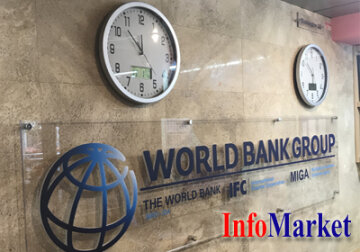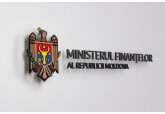
The IBRD and the International Development Association will provide Moldova with loans worth 98 million euros to implement the Moldova Rural Connectivity Project.
At a meeting held on Wednesday, the government approved the signing of loan agreements with the International Bank for Reconstruction and Development (IBRD) for 92.4 million euros and with the International Development Association for 5.6 million euros. The funds will be used to implement the Rural Connectivity Project and will be used to develop climate-resilient road connections in rural settlements, to expand road transit through border crossings with Romania and to respond to crises and emergencies promptly and, if necessary, more efficiently. The project will rehabilitate local roads and ensure road safety near schools and settlements, as well as organize infrastructure for non-motorized transport that moves along and near roads. In addition to construction works, road safety education and information campaigns will be organized to raise awareness and educate the public on road safety measures and practices. The second component of the project is to improve the functionality of the border crossing points between Moldova and Romania. A new border crossing point will be built in Ungheni with modern equipment for customs processing, weighing and scanning. Modernization of the Giurgiulesti and Leuseni BCPs is also planned. The other two components of the project are to provide effective emergency intervention and administrative support for project implementation. The total cost of the project is $190.55 million, of which 65% ($105.98 million) is a WB loan, 10.8% ($22.55 million) is a CEF grant, and 33.6% ($64.02) is the contribution of the Government of Moldova (funds will be allocated from the state budget through the Road Fund). All works envisaged by the project will be realized on the basis of feasibility studies. Earlier it was reported that the direct beneficiaries of the project will be about 42 thousand people, more than 130 enterprises, 27 medical institutions and 84 schools located along the rural roads selected for rehabilitation. The project is also expected to facilitate the shipment of 350 thousand to 400 thousand heavy loads per year. These benefits will be for carriers from Moldova, Ukraine, and Romania whose goods enter, exit, or transit Moldova through border crossing points open to road traffic. Economic benefits will include reduced waiting times for trucks and cars, increased trade, and reduced greenhouse gas emissions. Since 1992, when Moldova joined the World Bank, more than $2.1 billion has been committed to more than 70 operations in the country. The WB's portfolio currently includes 13 active projects totaling $742.9 million. Areas of support include regulatory reforms and business development, modernization of public services, tax administration, land registration, education, roads, health and social sector (including emergency response to COVID-19), agriculture, water and sanitation, and energy sector. // 12.06.2024 - InfoMarket.







